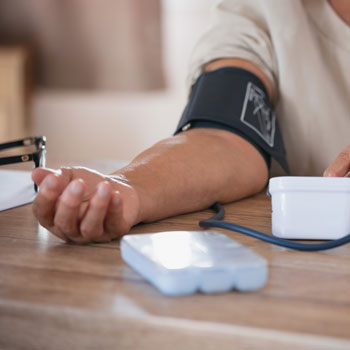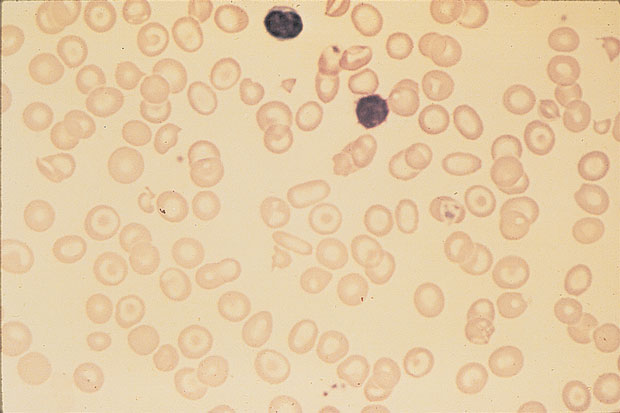First NASH treatment, over-the-counter CGM approved
This column reviews recent recalls, alerts, and approvals.
Recalls and warnings
A class I recall of Impella left-sided blood pumps by Abiomed because the pump catheter may perforate the wall of the left ventricle in the heart. The use of the affected pumps may cause serious adverse health consequences, including left ventricle perforation or free wall rupture, hypertension, lack of blood flow, and death. There have been 129 serious injuries reported, including 49 deaths.
A class I recall of certain AirLife manual resuscitators by Vyaire Medical, Inc. due to a manufacturing defect. Using the recalled resuscitators could result in patients not receiving enough or any ventilation. There have been 37 related reported incidents, including two injuries and two deaths. The issue was traced to a manufacturing defect that was corrected in 2017, but devices distributed before the correction may still be in use.
A class I recall of catheter tubing by Medtronic Neurosurgery due to a potential for disconnection of the catheter from the patient line stopcock connectors. If a tubing disconnection occurs, patients may experience infections, cerebrospinal fluid leakage, overdrainage of cerebrospinal fluid, or ventricle abnormalities. Uncontrolled over- drainage of cerebrospinal fluid could lead to neurological injury or death if undetected. There have been 26 reported injuries and no reports of death.
A class I recall of the HeartMate Touch Communication System by Abbott due to the risk of an unexpected pump stop or start. Use of the affected system may cause serious adverse health consequences, including lightheadedness, sudden change in blood flow, loss of consciousness, and death. There have been eight reported injuries and no reports of death.
A class I recall of several products from Windstone Medical Packaging, Inc., containing sterile water-based products in response to Nurse Assist LLC's recall of 0.9% sodium chloride and sterile water, over sterility concerns. Class I recalls have also been issued for certain lots of MIC gastric-jejunal feeding tubes and kits in response to the Nurse Assist recall and of certain kits, trays, and packs by Medline Industries. There have been no reports of injuries or deaths reported related to the recalls.
A recall of four lots of vancomycin hydrochloride for oral solution, USP, 250 mg/5mL packaged in 80-mL, 150-mL, or 300-mL pack sizes by Amneal Pharmaceuticals, LLC, because some bottles may have been overfilled, which can result in overpotent dosing.
A recall of one lot of methocarbamol Injection, USP 1,000 mg/10 mL (100 mg/mL) (single-dose vial) by Eugia US LLC, due to a customer report of white particles floating inside the vial.
A recall of one lot of treprostinil injection, 20 mg/20mL (1 mg/mL), by Par Pharmaceutical due to the potential for silicon particulates in the product solution.
A recall of Medfusion model 3500 syringe pump by Smiths Medical ASD Inc. due to issues associated with earlier software versions (before v.6), which may cause the pump to fail and result in delay or interruption of therapy. There has been one injury and no deaths related to this issue.
A recall of one lot of atovaquone oral suspension, USP 750 mg/5 mL, by AvKARE, LLC, due to potential Bacillus cereus contamination, found during stability testing at a third-party lab. In immunocompromised patients, microbial contamination could result in disseminated, life-threatening infection.
Miscellaneous
An update to a November 2023 safety communication recommending U.S. suppliers, consumers, and health care organizations immediately transition away from using plastic syringes manufactured by Jiangsu Caina Medical Co. Ltd, unless absolutely necessary, after an evaluation confirmed that there are issues with the quality of these plastic syringes made in China and found that their distribution in the U.S. was more widespread than originally known. Warning letters have also been sent to Medline Industries, LP, and Sol-Millennium Medical, Inc., concerning violations related to quality system regulations for syringe products.
Approval of safety labeling changes for fluorouracil injection products regarding the risk of serious adverse reactions in patients with dihydropyrimidine dehydrogenase deficiency.
A safety communication about a higher-than-expected rate of device failure with the Hintermann Series H3 ankle replacement system manufactured by DT MedTech LLC. Postapproval study results suggest a higher rate of additional surgery (removals or revisions of metal components, at least 16.1%) associated with the implanted device compared with that in premarket clinical studies (9.9%). When all types of revisions are included, the rate of additional surgery is at least 28.5%.
Approvals
Resmetirom (Rezdiffra), the first treatment for noncirrhotic nonalcoholic steatohepatitis (NASH) with moderate to advanced liver scarring, to be used with diet and exercise. Safety and efficacy were based on an analysis of liver inflammation and scarring at month 12 in a 54-month randomized controlled trial. A total of 26% to 27% of patients who received 80 mg of the drug and 24% to 36% of patients who received 100 mg experienced NASH resolution and no worsening of liver scarring, compared to 9% to 13% of those who received placebo and counseling on diet and exercise. Common side effects include diarrhea and nausea.
Givinostat (Duvyzat) oral medication for the treatment of Duchenne muscular dystrophy (DMD) in patients six years of age and older. The treatment received an orphan-drug designation and is the first nonsteroidal drug approved to treat patients with all genetic variants of DMD. Efficacy was evaluated in an 18-month study that showed statistically significantly less decline in the time it took to climb four stairs in those treated with the drug compared to placebo. Common side effects include diarrhea, abdominal pain, a decrease in platelets, nausea/vomiting, an increase in triglycerides, and fever.
Denosumab-bbdz (Jubbonti, Wyost), the first interchangeable biosimilar to Prolia (denosumab) for the treatment of osteoporosis in certain patient populations, and Xgeva (denosumab) for the treatment of bone complications from cancer, respectively. Common side effects of Jubbonti include low blood calcium, back, joint, arm, leg and muscle pain, and common cold. The most common side effects of Wyost include tiredness/weakness, low phosphate levels in blood, diarrhea, and nausea, among others.
A new indication for semaglutide (Wegovy) injection to reduce the risk of cardiovascular death, heart attack, and stroke in adults with cardiovascular disease and either obesity or overweight. The treatment should be used in addition to a reduced-calorie diet and increased physical activity. A trial found that patients on semaglutide, along with standard-of-care medical treatment and healthy lifestyle counseling, had a major cardiovascular rate of 6.5% compared to 8% with placebo. Semaglutide carries a boxed warning for the risk of thyroid C-cell tumors.
Marketing clearance of the Stelo Glucose Biosensor System from Dexcom, the first over-the-counter continuous glucose monitor (CGM). The system is an integrated CGM intended for anyone age 18 years and older who does not use insulin. The system is not intended for individuals with problematic hypoglycemia.
Emergency use authorization for pemivibart (Pemgarda) for the pre-exposure prophylaxis of COVID-19 in adults and adolescents who have moderate-to-severe immune compromise due to a medical condition or due to taking immunosuppressive medications or treatments and are unlikely to mount an adequate immune response to COVID-19 vaccination.
Mirvetuximab soravtansine-gynx (Elahere) for adult patients with FRα positive, platinum-resistant epithelial ovarian, fallopian tube, or primary peritoneal cancer, who have received one to three prior systemic treatment regimens. A randomized trial found median overall survival was 16.5 months in the mirvetuximab soravtansine-gynx arm and 12.7 months in patients who received chemotherapy. Overall response rate was 42% and 16%, respectively. The treatment carries a boxed warning for ocular toxicity and includes pneumonitis, peripheral neuropathy, and embryo-fetal toxicity under warnings and precautions. Common adverse reactions included increased aspartate aminotransferase, fatigue, increased alanine aminotransferase, blurred vision, and nausea, among others. Patients are selected to receive the treatment based on an FDA-approved test.
Accelerated approval of ponatinib (Iclusig) with chemotherapy for adult patients with newly diagnosed Philadelphia chromosome-positive acute lymphoblastic leukemia (Ph+ ALL). Efficacy was evaluated in an open-label trial of 245 newly diagnosed patients randomized to receive ponatinib 30 mg orally once daily or imatinib 600 mg orally once daily with chemotherapy. The minimal residual disease-negative complete response rate at the end of induction was 30% in the ponatinib arm and 12% in the imatinib arm. Common adverse reactions in the ponatinib group included hepatic dysfunction, arthralgia, rash and related conditions, headache, and pyrexia, among others.
Lisocabtagene maraleucel (Breyanzi) a chimeric antigen receptor (CAR) T-cell therapy to treat adult patients with relapsed or refractory chronic lymphocytic leukemia or small lymphocytic lymphoma. Patients and clinical trial participants receiving treatment with CAR T-cell immunotherapies should receive lifelong monitoring for new malignancies.
Amivantamab-vmjw (Rybrevant) with carboplatin and pemetrexed for the first-line treatment of locally advanced or metastatic non-small-cell lung cancer (NSCLC) with epidermal growth factor receptor (EGFR) exon 20 insertion mutations. The most common adverse reactions included rash, nail toxicity, stomatitis, infusion-related reaction, fatigue, edema, constipation, and decreased appetite, among others. Amivantamab-vmjw was also approved for adult patients with locally advanced or metastatic NSCLC with EGFR exon 20 insertion mutations, whose disease has progressed on or after platinum-based chemotherapy.
First-time generic drug approvals
Pimavanserin capsules, 34 mg, 10 mg, for the treatment of hallucinations and delusions associated with Parkinson's disease psychosis (Brand name: Nuplazid)
Fidaxomicin tablets, 200 mg, for the treatment of Clostridioides difficile-associated diarrhea (Brand name: Dificid)
Dronedarone tablets USP, 400 mg, to reduce the risk of hospitalization for atrial fibrillation (AF) in patients in sinus rhythm with a history of paroxysmal or persistent AF (Brand name: Multaq)
Nilotinib capsules, 50 mg, 150 mg, 200 mg, for the treatment of adult and pediatric patients at least 1 year of age with newly diagnosed Philadelphia chromosome-positive chronic myeloid leukemia (Ph+ CML) in chronic phase and for the treatment of adult patients with chronic-phase and accelerated- phase Ph+ CML resistant to or intolerant to prior therapy that included imatinib (Brand name: Tasigna capsules)
Note: The FDA states that drugs are not always commercially available immediately after approval.




